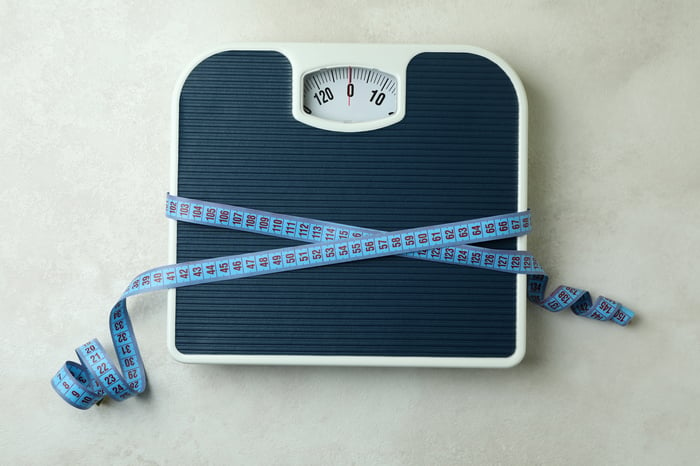Many people, at least in developed countries, have gained unwanted weight during the pandemic. This isn't surprising, given that stress and anxiety can cause overeating and cravings for so-called comfort foods, which tend to be fattening, and can also cause some people to drink more alcohol. Moreover, gyms and other places where many folks get exercise were temporarily closed.
About 42% of Americans experienced undesired weight gain during about the first year of the pandemic, with the average gain 29 pounds, according to the American Psychological Association's annual "Stress In America" report. In that report, Angela Fitch, associate director of the Massachusetts General Hospital Weight Center and VP of the Obesity Medicine Association, was quoted as saying the APA's findings are "alarming."
Of course, the numbers vary by source, but the exact numbers aren't that important. What's relevant is that a lot of people have gained undesired weight during the pandemic, with much of the weight gain substantial.
Three companies that should get a relatively long-lasting tailwind from this pandemic-driven weight-gain phenomenon are athletic apparel maker Lululemon Athletica (LULU 0.80%) and diabetes management companies Insulet (PODD 1.73%) and DexCom (DXCM 1.89%).

Image source: Getty Images.
|
Company |
Market Cap |
Forward P/E |
Wall Street's Projected Annualized 5-Year EPS Growth* |
1-Year Return |
10-Year Return |
|---|---|---|---|---|---|
| Lululemon Athletica |
$52.1 billion |
58 |
28% |
23.7% | 561% |
| Insulet |
$18.5 billion |
390 |
111% |
38.8% | 1,320% |
| DexCom | $49.9 billion |
225 |
18% | 19.5% | 3,540% |
|
S&P 500 |
-- | -- | -- | 37.5% | 317% |
Data sources: Yahoo! Finance and YCharts. Data as of July 30, 2021. P/E = price-to-earnings ratio. EPS = earnings per share. *Wall Street's estimates are just that: estimates. Two of these three growth companies (Lululemon and DexCom) have strong recent track records of beating analysts' expectations.
Lululemon: A potentially massive catalyst for growth on the horizon
Lululemon Athletica describes itself as a "healthy lifestyle inspired athletic apparel company for yoga, running, training, and most other sweaty pursuits."
Last year, the company entered the home connected-fitness business through its $500 million acquisition of Mirror. Mirror makes full-length mirror-like screens that stream on-demand and live workout classes and other content for a $39 monthly subscription fee. Users can also purchase personal training sessions for $40 a pop.
Lululemon's business held up much better last year during the pandemic than those of others in the apparel industry. That's thanks to its focus on athleticwear and athleisurewear and the fact that it had an established direct-to-consumer (DTC) business. Its fiscal 2020 (ended Jan. 31. 2021) revenue rose 11% to $4.4 billion and its adjusted EPS fell just 4.7% to $4.75.
With many economies around the world broadly reopening, the company's performance has revved up in fiscal 2021. In fiscal Q1 (February through April), Lululemon's net revenue soared 88% year over year to $1.2 billion. Earnings per share (EPS) according to generally accepted accounting principles (GAAP) was $1.11, up from $0.22 in the year-ago period, and adjusted EPS landed at $1.16, a five-fold increase.
For full-year fiscal 2021, management expects net revenue to be between $5.825 billion and $5.905 billion, which translates to annual growth of 33% at the midpoint. It also guided for adjusted EPS between $6.73 to $6.86, which translates to annual growth of 43% at the midpoint.
Lululemon has a potentially huge catalyst for growth on the horizon: The launch of its own brand of athletic shoes. CEO Calvin McDonald said last December that the company plans to introduce its first shoe or shoes in the second half of this year and begin selling them in early 2022. Watch out, Nike!

Image source: Getty Images.
The diabetes management companies: Insulet and DexCom
Diabetes was already a major health issue in the United States and the world before the pandemic started. The coronavirus crisis, unfortunately, has probably exacerbated the diabetes epidemic, because excess weight is a key risk factor for Type 2 diabetes.
Given the aforementioned weight-gain statistics and other statistics available, it seems likely to me that pandemic-driven weight gain probably pushed some folks who were previously prediabetic into the diabetic category and pushed some people into the prediabetic category for the first time. Some of these people might not have ever moved into these worsening health condition categories had the pandemic never occurred.
Fortunately, treatments for diabetes have made great progress in recent years. There are many companies in the diabetes management business, though most are not pure plays. Among the pure plays, Insulet and DexCom are attractive stocks.
Insulet makes the leading tubeless insulin pump, the Omnipod, which people with types 1 and 2 diabetes have embraced for its ease of use and comfort. DexCom -- which partners with Insulet and others -- makes a continuous glucose monitoring (CGM) system. Its G6 system is currently commercially available, though the company recently reported that it had "presented strong preliminary data for its next-generation G7 CGM system at the International Conference on Advanced Technologies & Treatments for Diabetes conference."
To be clear: All three of these companies already had attractive growth prospects before the pandemic started. The crisis has simply increased their growth potential, in my view. Lululemon is probably the best bet for most investors, which is why I more heavily focused on it, while the medical-device space is usually best left to investors with higher risk tolerances.





